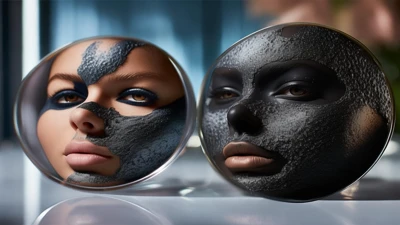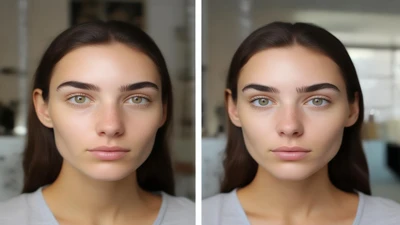
Does Alcohol-Based Mouthwash Work Better Compared to Alcohol-Free Ones?
Mouthwash has been a key part of oral care routines for a long time. It is advertised as a way to fight bad breath, cut down on plaque, and improve gum health. Many people are debating the benefits of alcohol-based versus alcohol-free formulations. Dental professionals are also weighing in on this issue. Critics worry that using alcohol-based mouthwashes can lead to dry mouth and irritation. Both types are evaluated in this essay for their efficacy, safety standards, user interactions, environmental contributions, and regulatory compliance, supported by research and personal input.
How well alcohol-based mouthwash works
Antimicrobial Action
Ethanol or isopropyl alcohol is a common ingredient in mouthwashes. Its concentration can range from 18% to 26%. Alcohol kills bacteria by denaturing their proteins. Based on a 2016 Cochrane Review of 31 studies, alcohol-containing mouthwashes are more effective than placebos for reducing plaque and gingivitis. For example, Listerine, a top alcohol-based brand, states that it eliminates 99 percent of germs. In 2019, a study showed that 9% of oral germs were targeted, and plaque buildup decreased by 34% after half a year.
Decreasing Plaque and Gingivitis
Alcohol can disrupt the process of biofilm formation. A 2020 randomized controlled trial published in Caries Research compared mouthwash with alcohol to one without alcohol over a period of 12 weeks. A 27% higher reduction in plaque was found with the alcohol-based solution. This is because alcohol can dissolve the membranes of bacteria. Results of the study varied according to usage frequency. Optimal benefits were observed with twice-daily rinsing.
Breath Freshening
Because alcohol is volatile, it evaporates fast and provides a short-term cooling feeling while masking odors. While this helps with instant bad breath, some say it avoids dealing with key factors like VSCs generated by anaerobic bacteria. According to a 2018 study, alcohol-based mouth rinses lowered VSCs by 70% immediately after use. The effect didn't last long, as levels increased again in just 90 minutes.
How well does alcohol-free mouthwash work?
Alternative Antimicrobial Agents
Many alcohol-free formulations incorporate cetylpyridinium chloride (CPC) for its benefits and enhance it with essential oils. g.Hydrogen peroxide, along with thymol and eucalyptol, is often utilized. A 2021 meta-analysis published in PLOS ONE showed that mouthwashes containing CPC decreased gingivitis by 22% compared to control groups. These results were similar to those of alcohol-based mouthwashes. Crest Pro-Health does not contain alcohol. The product uses stannous fluoride for bacteria protection and enamel strength. In a clinical trial from 2017, the use of stannous fluoride rinses resulted in a 31% drop in tooth decay over 18 months.
Moisturizing Benefits
Many alcohol-free alternatives rely on humectants like glycerin or aloe vera. Their role is to keep oral tissues hydrated. The Journal of Periodontology published research in 2022 involving 400 participants. Of those with xerostomia, 68% expressed a preference for alcohol-free rinses. Enhanced comfort and minimized irritation were primary factors influencing their choice. It is important since persistent dry mouth can lead to more cavities, which is ironic for users of alcohol-based items.
User Preferences
A 2019 ADA report stated that 58% of those surveyed regarded alcohol-free mouthwashes as gentler. A further 45% were more likely to maintain daily usage. This matches findings from sensory research. In 2020, a study published in the Flavour and Fragrance Journal found that alcohol-free products performed better in taste and afterfeel. These results were particularly strong for kids and seniors.
Safety Considerations
Oral Health Risks
For 25% of adults who experience dry mouth, alcohol consumption may worsen their condition, as per the Oral Cancer Foundation. Dry mouth over an extended period disrupts the natural flora in the mouth, raising the chances of tooth decay and oral thrush. One controversial report from Australia in 2008 found that daily use of alcohol-based mouthwashes was linked to a five-times-greater chance of developing oral cancer. Further studies have yet to validate or refute this claim. The IARC reports that no firm A Word From Beautyvs can be drawn about this association due to insufficient data.
Systemic Health Concerns
Ethanol in mouthwash turns into acetaldehyde, which is a carcinogen. A 2020 study in Scientific Reports found acetaldehyde levels in saliva to be 10 times higher after using alcohol-based mouthwashes, sparking concerns about long-term exposure risks. The absence of this pathway in alcohol-free options ensures greater safety for individuals suffering from alcohol dependency or liver ailments.
What Users Experience and Prefer
Sensory Perception
The burning feeling from alcohol-based rinses is often considered a deterrent and results from ethanol interacting with the oral mucosa. In a 2018 focus group study published in Patient Preference and Adherence, 34% of participants stopped using mouthwash with alcohol as it caused discomfort. On the other hand, those who used alcohol-free options were more satisfied, particularly with mint or citrus flavors.
Long-Term Compliance
Over a six-month period, compliance with alcohol-free mouthwashes was 15% higher, as per the ADA survey. This is a key factor since persistent use ensures prolonged rewards.
Observations on Nature and Compliance Standards
Environmental Impact
Alcohol production consumes considerable energy. This leads to a bigger carbon footprint. According to a 2021 study in Environmental Science & Technology, ethanol-based mouthwashes emit 22% more greenhouse gases than alcohol-free ones. The main reason lies in the agricultural inputs needed for ethanol.
Regulatory Endorsements
Whether a product contains alcohol or not, it can earn the ADA Seal of Acceptance by meeting specific efficacy and safety guidelines. Still, the organization points out that options without alcohol are more suitable for children and those suffering from dry mouth.
Personal Observations and Proposed Solutions
I tried both types and originally preferred Listerine for its strong 'clean' sensation, but I switched to Crest Pro-Health due to ongoing dry mouth issues. I miss the stimulating feeling, but getting rid of morning breath and mouth ulcers has been amazing. Consider visiting a dentist. Alcohol-based rinses can benefit individuals with significant plaque buildup. Alcohol-free options are ideal for sensitive mouths.
A Word From Beautyvs
Personal needs play a role in selecting alcohol or alcohol-free mouthwash. While alcohol-based variants work well for immediate antimicrobial effects, they are not safe for everyone. Products without alcohol are gentler and offer enduring benefits. They also fit well with environmentally aware values. Ultimately, mouthwash should be included in your daily oral hygiene habits. Brushing and flossing alone may not be enough. Advancements in research mean that formulations will improve over time. To achieve the best oral health, consumers should choose wisely.














